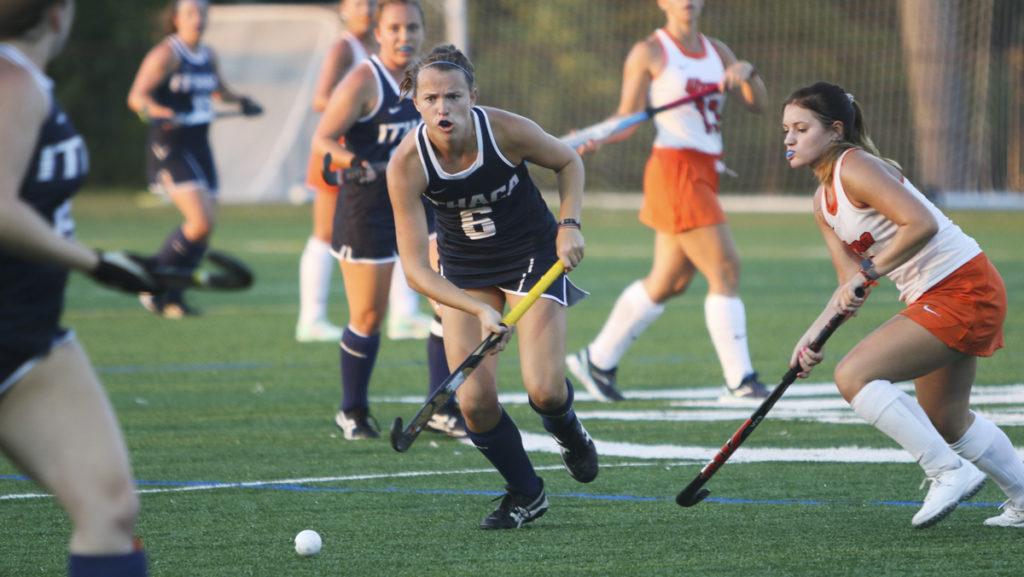Ithaca College athletes place value on the Division III philosophy.
Competing at a collegiate level is no small feat. According to the National Collegiate Athletic Association, only 6 percent of high school athletes play in the NCAA. However, there is a large disparity between Division I athletics that is more frequently seen in the media compared to Division III schools such as our own. This is something that not all Ithaca College students seem to understand.
The NCAA Division III philosophy emphasizes the priority of academics, as does the Office of Intercollegiate Athletics. However, students often question student-athletes’ roles on campus. Since my time at IC began, I have observed several instances of students tweeting these misconceptions about campus athletics that are beyond the athlete’s control. Students complain that athletes get to choose classes first and major in easy degree programs and that coaches find scholarship money for undeserving reasons.
This is just not true. While the majority of classes offer sections before 4 p.m. for athletes to avoid conflicts with practices and competitions, there is no priority for athletes in these sections. In fact, this fall one of my teammates had to go in front of a class and personally ask for someone to switch into a later section that conflicted with practice because the early section filled before her selection time.
The 800 student-athletes at Ithaca College are extremely hardworking both on and off the field. Scholarships awarded to our student-athletes are highly merited by academics with zero sway from the coaches. Approximately 37 percent of our student-athletes have majors within the School of Health Sciences and Human Performance, which includes many academically rigorous and clinically intensive programs, such as physical therapy, occupational therapy and athletic training. The average GPA of the college’s student-athletes was a 3.32 last semester, with 65 athletes being recognized as scholar-athletes for holding a cumulative GPA of 3.75 or above after completing five semesters at IC.
Another common misconception is that athletic fields are unfairly given priority when the college is plowing snow on campus, especially because they are supposedly not used as much during the winter months. Higgins Stadium, home of Ithaca College’s only artificial turf, is used daily by varsity, recreation and intramural athletes combined. Even in the snowy winter months, the men’s and women’s lacrosse teams practice outside in preparation for their official seasons in February. The college has a specific maintenance staff dedicated to athletic facilities and it is not allowed to start athletic maintenance until their other designated areas of campus are cleared. Even so, plowing the turf has its restrictions in order to maintain the field’s quality. This requires the varsity teams to shovel the field before being able to practice.
These misconceptions are not just present at IC but occur for student-athletes countrywide. The NCAA works to clarify these misconceptions with the help of student-athletes with Diversity and Inclusion Week, which happens in the fall. Many Ithaca College teams participated via social media, including soccer, field hockey and softball. Day two of this week is themed “Beyond a Label,” which gives a platform to debunk athletics-related stereotypes. Athletes on our campus discussed taking advantage of campus opportunities beyond athletics, such as study abroad and other extracurriculars, as well as other misconceptions that spread throughout our campus. The NCAA continues this effort year-round with Division III Week in the spring.
Many misconceptions surrounding athletics on our campus often have little to do with student-athletes themselves. A challenge in the classroom does not keep our student-athletes off the field of play. We are not the coddled athletes that many believe us to be. IC student-athletes truly value the Division III philosophy and work extremely hard on and off the field to maintain that integrity.














